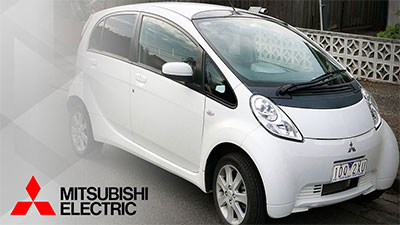The Indian government has ambitious plans to shift on a mass scale to electric vehicles (EVs) by 2030. The plans are opulent and certainly hold several paybacks for environment conservation.
While the transformative thrust for electric vehicles is a very positive move for India and the world, it presents myriad opportunities as well as challenges.
 Mitsubishi Electric has already taken a step towards making the idea of mass scale shifting to electric vehicles a reality. The company recently launched a new J-Series transfer molded power semiconductor module (T-PM) mainly for motor drive applications in electric and hybrid vehicles. It is known that automotive components must especially meet stringent safety standards, which creates demands for power semiconductor modules that provide greater reliability than modules for industrial equipment. Mitsubishi Electric pioneered the mass production of power semiconductor modules for hybrid vehicles in 1997.
Mitsubishi Electric has already taken a step towards making the idea of mass scale shifting to electric vehicles a reality. The company recently launched a new J-Series transfer molded power semiconductor module (T-PM) mainly for motor drive applications in electric and hybrid vehicles. It is known that automotive components must especially meet stringent safety standards, which creates demands for power semiconductor modules that provide greater reliability than modules for industrial equipment. Mitsubishi Electric pioneered the mass production of power semiconductor modules for hybrid vehicles in 1997.
The company’s new module is expected to contribute to further compactness, weight reduction and reduced power consumption in inverters for electric and hybrid vehicles. It has some cutting-edge features like reduced inverter size and weight achieved through the extra compact package with high integration. The compact power semiconductor module features a highly integrated sixth-generation IGBT with a carrier-stored trench-gate bipolar transistor (CSTBTTM) structure and high-thermal conductivity isolation sheet in a transfer molded package. It realises compact EV/HEV inverter designs by achieving 36% smaller footprint and 42% lighter weight compared with the existing J-Series CT300DJH060 automotive power semiconductor module.
Another important feature is inverter power-loss reduction supported by low-loss power semiconductor chips. It realises low power-loss EV/HEV inverter designs through the utilization of sixth-generation IGBTachieving 12% lower collector-emitter saturation voltage compared with the existing J-Series.
The new module is automotive-grade high quality and features transfer molded structure and Mitsubishi Electric’s original Direct Lead Bonding (DLB) structure. Its power-cycle and temperature-cycle life spans are 30 times longer than those of typical industrial powersemiconductor modules. The power-cycle lifespan is based on repetitive operational tests with the chip energised and the temperature rapidly changed within a range of 50°C and 100°C. The temperature cyclelifespan is based on repetitive operational tests with the temperature modulated between -40°C and 125°C without the chip being energised. The new module is completely lead-free, including its terminal plating.






